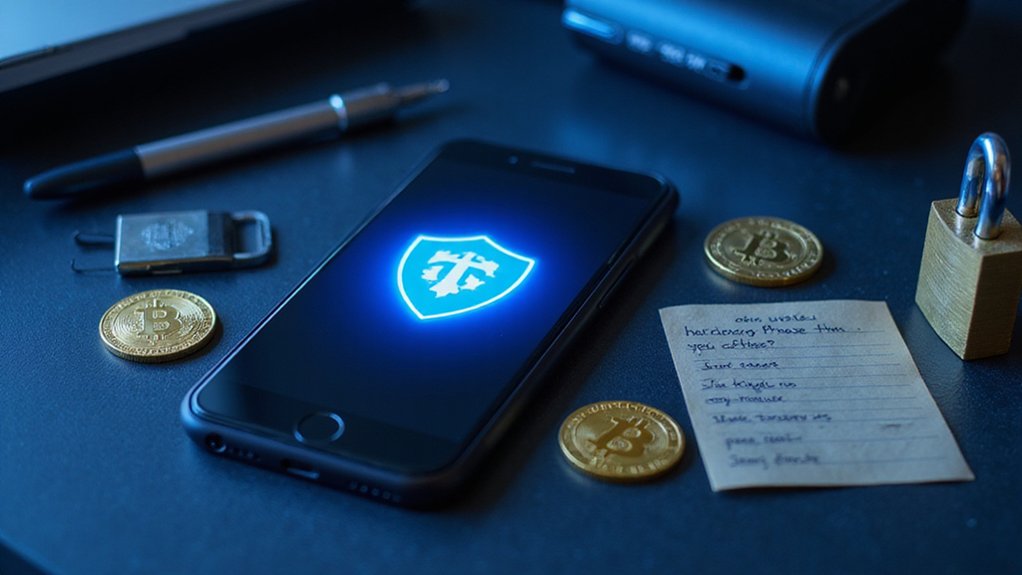Creating a cryptocurrency token requires choosing a clear purpose (currency, governance, or utility), selecting an appropriate blockchain platform (Ethereum, Binance Smart Chain, or Solana), and determining the token standard (ERC-20, ERC-721, or ERC-1155). Technical implementation involves defining parameters like name, symbol, and supply mechanisms, followed by rigorous testing and security audits. With over 36 million tokens already in existence, successful projects distinguish themselves through purposeful design rather than mere technical execution. The journey from concept to viable token holds numerous pitfalls for the uninitiated.

Why has the creation of cryptocurrency tokens become such a compelling frontier for entrepreneurs, developers, and financial innovators alike? The answer lies in the democratization of financial instrument creation—a process once reserved for banking behemoths now accessible to anyone with coding acumen and blockchain savvy.
The journey begins with defining the token’s raison d’être. Will it function as currency, governance mechanism, utility token, or perhaps something more esoteric? This fundamental purpose must align with the project’s broader objectives and target demographic; a misalignment here presages failure with near-mathematical certainty.
A token without purpose is like a ship without compass—destined for the rocks of investor indifference.
Selecting an appropriate blockchain platform follows—a decision with cascading implications.
Ethereum remains the grand dame of token platforms with its battle-tested ERC-20 standard, though upstarts like Binance Smart Chain (with lower gas fees but more centralized architecture) and Solana (boasting transaction speeds that make Visa look positively glacial) continue gaining traction. This platform selection process is increasingly important as the ecosystem now hosts over 36.4 million crypto tokens with projections to exceed 100 million by the end of 2025.
The choice hinges on the eternal blockchain trilemma: decentralization, security, and scalability—pick two, as conventional wisdom dictates.
The token standard selection flows naturally from platform choice. ERC-20 predominates for fungible tokens, while ERC-721 governs the NFT space.
The multi-token ERC-1155 standard offers a hybrid approach for projects requiring both fungible and non-fungible elements within a unified framework.
With these decisions crystallized, the technical implementation commences.
Leveraging established frameworks like OpenZeppelin (rather than coding from scratch—a fool’s errand in the security-critical domain of blockchain) dramatically reduces vulnerability surfaces.
Parameters including name, symbol, supply mechanisms, and decimal precision must be meticulously defined.
Those without programming knowledge can rely on the fourth option of hiring a blockchain developer to handle the technical complexities of token creation.
For those creating humorous or satirical tokens, utilizing meme coin generators can significantly simplify the smart contract development process.
Rigorous testing on testnets precedes mainnet deployment, with transfer functions, minting capabilities, and wallet interactions scrutinized for flaws.
Third-party security audits, while expensive, offer insurance against the catastrophic exploits that regularly humble even experienced developers.
The final deployment, exchange listings, and ongoing token management represent not the conclusion but merely the commencement of a token’s lifecycle—one that, if properly conceived and executed, might join the pantheon of successful digital assets that have transformed our financial landscape.
Frequently Asked Questions
What Legal Requirements Exist for Launching a Cryptocurrency Token?
Launching a cryptocurrency token entails traversing a labyrinth of regulatory requirements that vary by jurisdiction and token functionality.
Creators must consider SEC securities classifications, FinCEN registration as Money Services Businesses, implementation of AML/KYC protocols, and OFAC sanctions compliance.
State-level licensing may apply for fiat transactions or custodial services.
The tax implications—with cryptocurrencies treated as property—cannot be overlooked, nor can the impending Form 1099-DA reporting requirements (effective 2025).
Regulatory compliance isn’t optional; it’s existential.
How Much Does It Cost to Create a Token?
Creating a cryptocurrency token entails a surprisingly variable cost structure—ranging from $5,000 to over $100,000.
The financial commitment hinges on several factors: blockchain selection (Ethereum commands premium prices while Solana offers transactions for mere dollars), feature complexity, and development methodology.
Basic ERC-20 implementations typically demand $5,000-$10,000, while feature-rich tokens with staking mechanisms and governance structures push costs northward.
Savvy developers might minimize expenses by leveraging existing templates or opting for cost-efficient blockchains—a prudent approach in an industry where capital efficiency matters.
Can I Create a Token Without Coding Knowledge?
Yes, creating tokens without coding knowledge is entirely feasible through various no-code platforms.
Services like CreateMyToken, Bitbond, and Smithii Token Creators offer user-friendly interfaces that automate smart contract generation across multiple blockchains.
These tools—which range from free to modestly priced—allow customization of token parameters while implementing advanced features like anti-whale mechanisms.
While technical proficiency isn’t required, a basic understanding of blockchain principles remains beneficial for managing the token creation ecosystem effectively.
How Do I Get My Token Listed on Major Exchanges?
Getting a token listed on major exchanges requires traversing a complex gauntlet of prerequisites.
Projects must demonstrate regulatory compliance across jurisdictions, build a substantial community (social media presence being the de rigueur proof of concept), and articulate clear token utility beyond speculative ambitions.
The application process—ranging from 15 to 70+ questions—demands meticulous preparation, while sufficient liquidity remains non-negotiable.
Industry connections, though rarely acknowledged publicly, can expedite this labyrinthine process considerably.
What Are the Tax Implications of Issuing a Cryptocurrency Token?
Issuing cryptocurrency tokens creates a labyrinth of tax obligations that many developers blithely underestimate.
While token creation itself isn’t taxable, distribution triggers immediate considerations: tokens granted as compensation are subject to income tax at fair market value upon receipt, while subsequent sales incur capital gains treatment.
The issuer must maintain immaculate records for reporting requirements (a task seemingly designed to torment even the most organized entrepreneurs) and recipients face their own complex tax burdens based on vesting schedules¹.
¹The 83(b) election offers potential relief but demands timely filing—within 30 days of grant, not a moment later.









